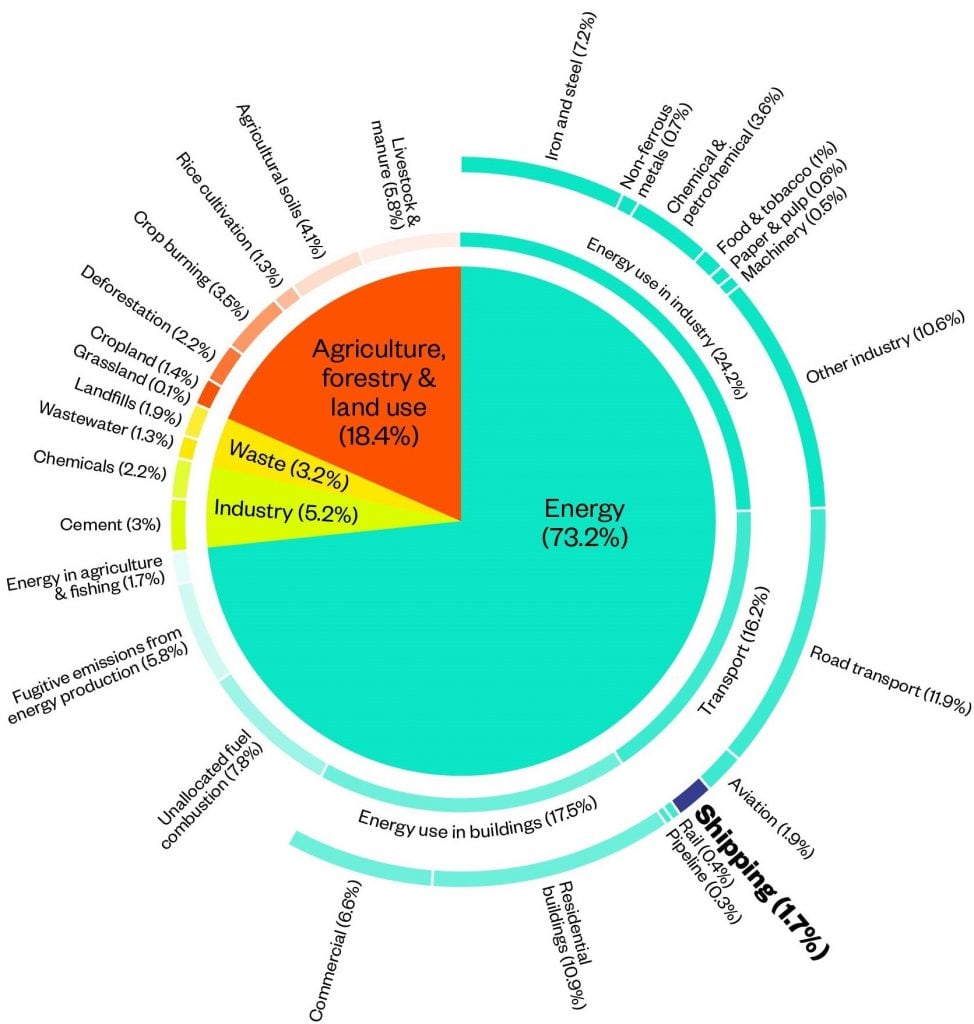Environmental Initiatives
Shipping is the least environmentally damaging form of commercial transport and, compared with land-based industry, is a comparatively minor contributor to pollution from human activities.
For example, shipping produces just 2.2% of the world’s GHG emissions, and contributes less than 15% of global transport’s GHG emissions. Agriculture emits a share of over 20% according to FAOSTAT, energy almost 40 %. Meanwhile, marine pollution in the form of oil spills has been drastically reduced in the past 15 years despite the massive growth in seaborne trade.

For the future the industry is focusing on the complete decarbonisation of the international shipping industry, with a globally coordinated target to reach a full reduction by 2050.
ICS is committed to working towards ambitious, pragmatic and effective environmental solutions, leading to robust regulation which is fit for purpose. It works closely with shipping’s global regulator, the UN International Maritime Organization (IMO), submitting short and long term proposals that contain viable answers to sustainability issues.
By collaborating with other industry bodies and national member states, it builds coalitions in order to ensure environmental goals are supported and met, while preserving operational safety at sea.
Environmental projects proposed or underway include:
- Promotion of new engine technology to achieve a ‘4th propulsion revolution’
- Work towards commercially viable zero-carbon emission ships by the early 2030s
- The creation of a $5 billion decarbonisation R&D Fund
- Efficacy assessments for GHG reduction technologies
- A marine fuel carbon ranking system
- Policy on improved port efficiency and reduced emissions onshore
- Measures to reduce methane slip from gas-fuelled ships
- Development of ‘clean’ operations curbing plastic waste and biofouling
- Shipyard collaboration to reduce underwater noise which may harm sea life
Useful links:
- Comparison of CO2 emissions by different modes of transport
- Reduction in quantity of spilled oil
- International Regulation on Reduction of Ships’ CO2
- International Regulation on the Reduction of Atmospheric Pollution from Ships
Related content

Shipping sector proposes USD 5 billion R&D board to cut emissions

Environmental Organizations and Shipping Industry Call For Carriage Ban on Non-compliant Fuel

IMO report on GHG finds a decoupling between trade and emissions in shipping
